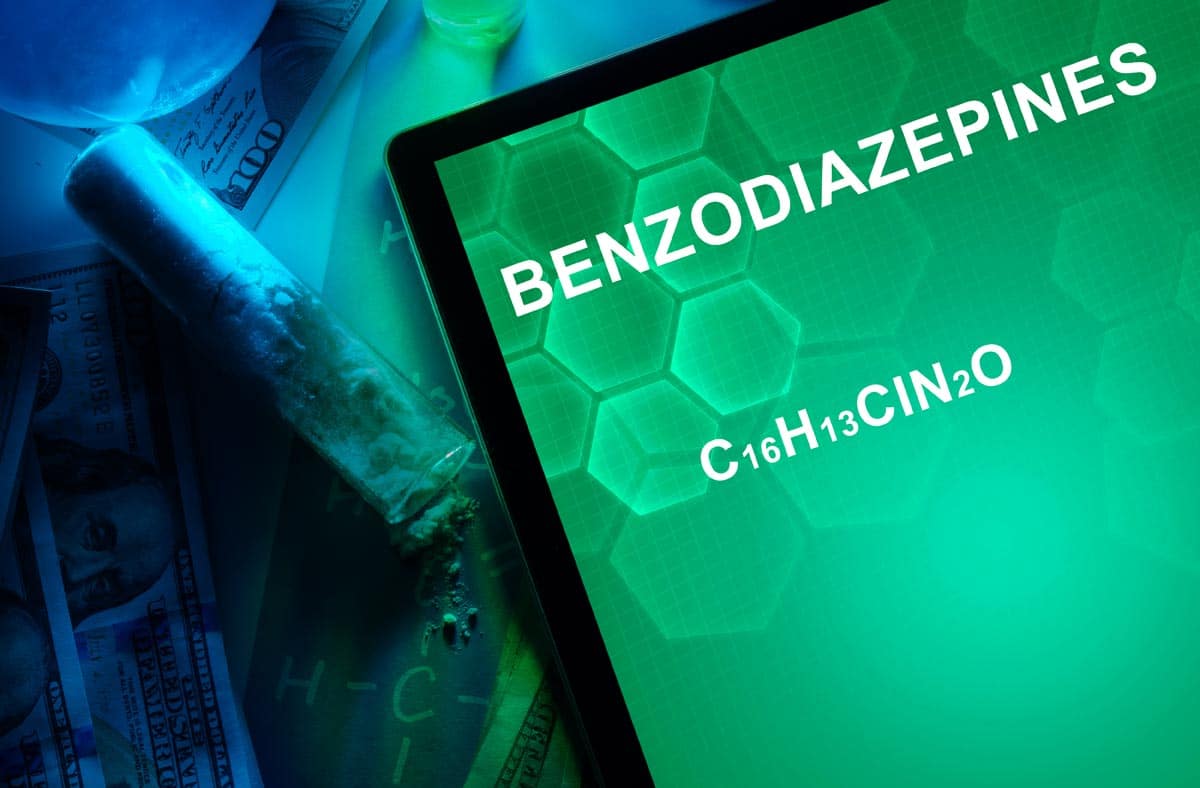 The United States is in the middle of an epidemic of drug use. An estimated 18.5 million people were addicted to drugs or alcohol in 2019. While that’s likely gone up in 2020, this works out to more than 1 in 20 Americans. Drug use is widely condoned and even seen as a bit of recreational fun, but once you get hooked, many of them can be incredibly difficult to kick.
The United States is in the middle of an epidemic of drug use. An estimated 18.5 million people were addicted to drugs or alcohol in 2019. While that’s likely gone up in 2020, this works out to more than 1 in 20 Americans. Drug use is widely condoned and even seen as a bit of recreational fun, but once you get hooked, many of them can be incredibly difficult to kick.
At the same time, that’s not always related to the drug. Instead, it’s often related to the fact that most people don’t get help. For example, just 11% of individuals with a substance use disorder sought out help in 2018. Instead, people attempt to quit on their own and at home. That’s in the same environment, conditions, and stresses that resulted in an addiction to begin with.
Substance use disorders are complicated. It’s important not to underestimate how they affect you, your brain, and your body. Understanding how a class of drugs is addictive or more so than others might help to drive that home, but for any drug, the answer is usually to get help.
The Top 5 Most Difficult Drugs to Kick
If you’ve formed a chemical dependency on a drug, it will be difficult to kick. If you’ve formed a mental dependency on a drug, it will be even harder to kick. So, the hardest drugs to kick are normally the ones that very quickly form both types of addiction. Others, like marijuana, which normally form a mental dependency without the physical dependency, are easier – but definitely not easy.
To drive that home, the first drug on this list is nicotine.
1. Nicotine
Everyone knows someone who smokes. In fact, more than 1 in 10 Americans smoke. And, chances are, anyone you know who smokes says they want to quit. In fact, of the 40 million self-described smokers in the United States, 35 million state they want to quit. Yet, they don’t. That’s despite a Nicotine patch industry that’s worth 229 million dollars. Nicotine is difficult to quit. Why? It hits your brain in just 3.5 seconds, creating a short-term high, prompting users to quickly go for another hit. That’s physically and mentally habit building. That’s why 85% of smokers quit, even after 35+ attempts at quitting. Just 6% of people attempting to quit succeed in any given year. Despite that, Nicotine has a relatively light withdrawal phase. Instead, the mental dependency gets you. Most users make it through the worst of the withdrawal symptoms and then lapse up when they give into cravings after they’re confident they’ve beaten it.
2. Cocaine
Cocaine and crack cocaine are normally seen as relatively light and harmless drugs. Yet, they account for about 40% of all drug-related emergency room visits. In fact, Cocaine comes in just behind fentanyl in terms of hospital visits. Cocaine also has a light withdrawal and addiction profile. Users are unlikely to exhibit those intense seeking behaviors associated with “ drug addiction”. But, putting cocaine down is incredibly difficult. Cocaine affects the nervous system, energy, and the emotions. Coming down, you’ll experience a crash phase resulting in exhaustion, restlessness, irritability, anxiety, and nightmares that can last for weeks. And, many experience emotional blunting, or difficulty experiencing emotions, that lasts for months at a time. Quitting without treatment or without enough time and self-motivation to isolate yourself and recover is intensely difficult.
Be Brave. Get Help.
We know what it’s like to have a new chance at life. We want you to feel that, too.
Call us: 1 954-688-5806
3. Benzodiazepines
 Benzodiazepines are perhaps the most commonly prescribed class of drugs in the world. But they’re also incredibly hard to kick. Once prescribed for years at a time, most doctors now limit benzo prescriptions to a matter of weeks. That’s important, because they interact with the body in extreme ways. Benzos interact with the central nervous system and the GABA receptors. You quickly form physical dependence. When withdrawal hits, it comes with dangerous symptoms like tremors, seizures, and intense diarrhea. Most patients are not recommended to quit these on their own. In fact, going cold-turkey can be deadly. At the same time, Benzos are incredibly mentally addictive. That’s especially true considering many people are prescribed them for anxiety and panic disorders. That makes it easier to pick up a drug because you don’t want to have a panic attack later. Habits are self-forming and self-perpetuating. Plus, it’s incredibly difficult to quit a drug when you’re relying on it to handle daily life.
Benzodiazepines are perhaps the most commonly prescribed class of drugs in the world. But they’re also incredibly hard to kick. Once prescribed for years at a time, most doctors now limit benzo prescriptions to a matter of weeks. That’s important, because they interact with the body in extreme ways. Benzos interact with the central nervous system and the GABA receptors. You quickly form physical dependence. When withdrawal hits, it comes with dangerous symptoms like tremors, seizures, and intense diarrhea. Most patients are not recommended to quit these on their own. In fact, going cold-turkey can be deadly. At the same time, Benzos are incredibly mentally addictive. That’s especially true considering many people are prescribed them for anxiety and panic disorders. That makes it easier to pick up a drug because you don’t want to have a panic attack later. Habits are self-forming and self-perpetuating. Plus, it’s incredibly difficult to quit a drug when you’re relying on it to handle daily life.
4. Amphetamines
Amphetamines like Adderall, Myadis, Methamphetamine, Crystal Meth, and others are extremely popular recreational drugs. Most people are aware they are addictive and dangerous. Yet, they use them anyway. In fact, over 1.4 million people use methamphetamine, an illegal drug, in the United States. Amphetamines affect the central nervous system. They act as a stimulant, giving users high dose of feel-good hormones and energy. When you quit or even slow down, you crash. Over the short-term, withdrawal symptoms can be intense enough to prompt people to keep using. But, mental addiction and reliance on the boost can be equally difficult to kick. In fact, doctors recommend tapering off this drug, much like with Benzodiazepines. Otherwise, you can face severe cold and flu symptom, extreme anxiety and panic attacks, and fatigue.
5. Opioid
Opioid, ranging from fentanyl to heroin, are the most commonly abused drug in the world. They also have a reputation for being dangerous. Like meth, people continue to use them anyway. In 2019, over 50,000 people died of an opioid overdose. The United States estimates that some 1.7 million Americans are addicted to prescription painkillers. Other opioids like heroin have nearly a million people “hooked”. That’s despite the fact that these narcotics cause difficulty functioning once you’re addicted. Strong withdrawal symptoms, mental reliance, and seeking behavior result in this drug being one of the most difficult to quit.
Why is it Harder to Quite Some Drugs than Others?
 A 2007 study measuring the potential misuse of drugs scored common substances based on their ‘addictiveness’. That study used criterion such as:
A 2007 study measuring the potential misuse of drugs scored common substances based on their ‘addictiveness’. That study used criterion such as:
- How the drug interacts with dopamine receptors
- Withdrawal symptoms
- Cognitive changes resulting from drug use
- Physical harm resulting from drug use
- Psychological addiction and cravings
Drugs like marijuana and caffeine score relatively low on the chart. Drugs like tobacco and amphetamine score relatively high. But, scores also vary per person. What one person reacts badly to, another might have few problems with at all.
That’s quite a bit related to vulnerabilities like stress, economic factors, upbringing, genetics, and epigenetics. A very self-disciplined person might recognize early signs of addiction and quit. But, once you’re addicted, you’re unlikely to have much of that left. And, even low-scoring drugs can cause addiction if you’re vulnerable. That means no drug should be treated “casually”.
If you or a loved one is addicted to a drug, it’s important to seek out help. Even if you start out by contacting your doctor, it’s better than trying on your own. And, while many people avoid talking to medical professionals about things they feel are shameful like drug addiction (drug addiction is a disorder, not something to be ashamed about) it can help you immensely to get help.
Rehab or drug addiction treatment combines treatments like behavioral therapy, counseling, group therapy, and skills training to help you build skills. You learn to tackle behaviors and underlying problems behind your addiction. And, you learn how to build a happy life without drugs – eventually allowing you to start over clean. Of course, rehab isn’t a magic bullet for drug addiction, but it can help, and significantly more so than attempting to kick a habit on your own.

 Matthew Beck B.A, M.A, LMFT
Matthew Beck B.A, M.A, LMFT 


